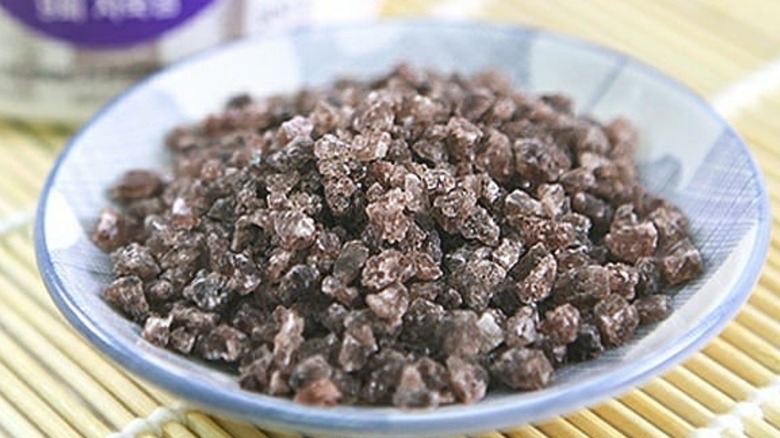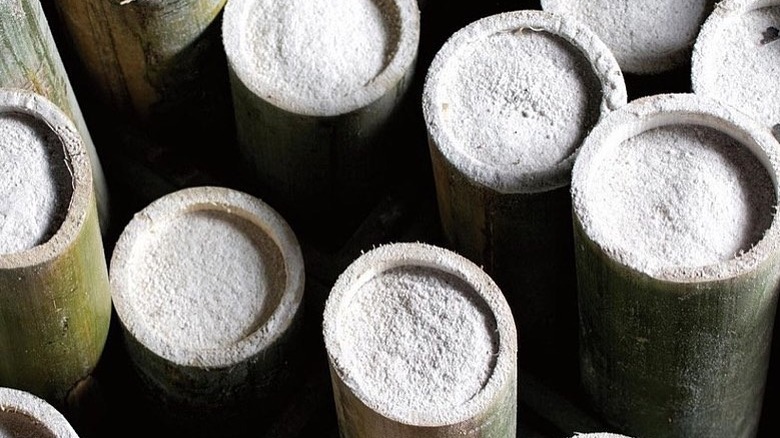The Real Reason Bamboo Salt Is So Expensive
We may receive a commission on purchases made from links.
On Amazon, there's an ad for purple bamboo salt boasting that the crystalline compound contains "80 trace minerals." It's only got 22 ratings (at the time of this writing), but the reviews it has would make you think that customers had found The Holy Grail. "I put some under my tongue to dissolve. I do this quite a few times a day. I am addicted to the taste," writes one reviewer, who also boasted that "just one soak" in the salt did wonders for curing athlete's foot. Another writes, triumphantly, "Other salts make my nose stuffy and throat phlegmy (not good for singing), but not bamboo salt."
Anecdotally, there are horror stories, too. Take the time a 20-year-old in Korea took 150 grams of bamboo salt a day in an attempt to lose weight and ended up in the hospital with a severe case of hypernatremia. The hypernatremia (a fancy word for too much salt in your system) caused severe vomiting and diarrhea in the overzealous patient (via Electrolyte Blood Press).
Bamboo salt, as Business Insider will tell you, has been used in Korean cuisine and traditional medicine for at least a century. It's highly coveted, but it's also astronomically expensive. In the United States, for example, Woodland Foods sells 33 ounces of bamboo salt for $46.35. And, per Business Insider, in Korea, different versions of the salt can cost you between $179 and $224 per kilo.
Why some bamboo salts costs over $179 per kilo
Rumor has it that bamboo salt tastes out of this world. Woodland Foods describes it as "umami-rich," and "complex," with a "distinctive, subtly sulfurous aroma." A bamboo salt manufacturer told Business Insider that bamboo salt is imbued with bamboo's "egg yolk-like flavor."
But it's not the salt's unique taste profile that makes it so expensive: it's the 35 to 50-day, labor-intensive process required to make it. As per Business Insider, carefully trained bamboo salt makers pack sea salt from Korea's west coast into three-year-old bamboo stalks and put them into a kiln powered exclusively by pine logs, until the stalks burn away. The salt's first journey into a kiln takes between 12 to 14 hours, but bamboo salt isn't roasted just once: it's roasted up to nine times. On its ninth and last roast, the kiln reaches 1,832 degrees Fahrenheit. At this point, the salt melts and is left to drain into a mold.
Supposedly, the process rids the salt of any toxins, like microplastics. And while the scientific community has yet to definitively prove any of its supposed health benefits, bamboo salt's followers are nonetheless faithful. To quote one Reddit customer: "Bamboo salt reminds me of a complex scotch, and while there are earthy, planty aspects of it, it's still difficult to explain. All I know is that I love it, and people I prepare dishes for also seem to think it's wonderful, as well."

